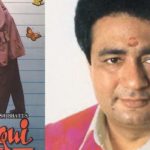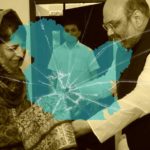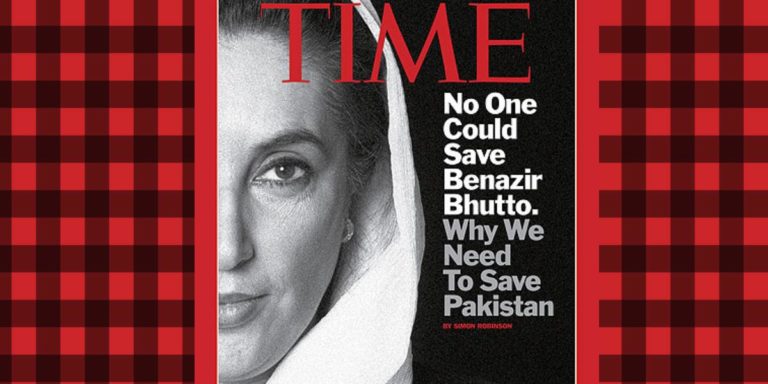It was going to be eventide, the another day of pleasant gloaming in our School situated at the foot of a hill in Eastern Ghats of Odisha, when I noticed Mr. Don Bosco Lazarus (Selvaraj), a teacher in our School where I am posted as an SBI fellow, reading ‘Daughter of the East’, an autobiography of former Pakistani Prime Minister Benazir Bhutto. When I asked him about the book, he strongly recommended me to read it, and true to his recommendation, it proved to be an exciting and engrossing read. On this very day in 1953, Benazir Bhutto was born into the Bhutto family, a highly influential political family of Pakistan. Her father, Zulfikar Ali Bhutto had served as the 4th President of Pakistan from 1971 to 1973 and then the 9th Prime Minister of Pakistan from 1973 to 1977. Her grandfather Shah Nawaz Bhutto too had been an acclaimed politician and had served as the Prime Minister of Junagarh state. This was a dominant, moneyed and propertied landlord family from Sindh. Her ancestors were Hindus who were forcibly converted to Islam.
In Benazir Bhutto’s own words, as she has put it in her autobiography, “The diaries of one of our ancestors, giving the family details, were washed away in a great flood in my great-grandfather’s time. But as children we were told that we were descended either from the Rajputs, the Hindu warrior class in India which converted to Islam at the time of the Muslim invasion or from the conquering Arabs who entered India through our home province of Sindh, giving it the name ‘The Gateway to Islam.’”
Studied at globally-reputed Universities like Harvard and Oxford, Benazir lived a luxurious as well as a tough life. After her father was arrested and jailed by the Military dictator Zia-ul-Haq who later hanged him on April 4, 1979, inside Rawalpindi District Jail, despite adequate global appeals, the life took a terrible turn for her and her family, until Zia died in a mysterious plane crash in August 1998.
Late me narrate two of the exciting accounts from her autobiography ‘Daughter of the East’ that brought her personal life to the global attention.
No Existence of Pakistan in Her Classmates’ Eyes.
Benazir Bhutto narrates an interesting story about her days in Radcliffe, Harvard, where her classmates had been oblivious about the existence of any Country called Pakistan. She writes:”Pak-i-stan? Where’s Pak-i-stan?” my new classmates had asked me when I first arrived at Radcliffe. “Pakistan is the largest Muslim country in the world,” I replied, sounding like a handout from our embassy. “There are two wings of Pakistan separated by India.”
“Oh, India,” came the relieved response. “You’re next to India.”
I smarted every time I heard the reference to India, with whom we had had two bitter wars. Pakistan was supposed to be one of America’s strongest allies, a geographical buffer against the Soviet influence in India and our other border countries of Communist China, Afghanistan, and Iran. The United States used our air bases in northern Pakistan for their U-2 reconnaissance flights, including the ill-fated flight of Gary Powers in 1960. Henry Kissinger’s secret flight from Islamabad to China in 1971 was more successful, paving the way for President Nixon’s historic visit the next year. Americans seemed utterly unaware even of the existence of my country.
When She Mentioned Indian Army’s Valour to Censure Pakistani Army
This is a story of when she along with her mother had been incarcerated in their own ancestral house at Al-Murtaza, by the then Military dictator Zia-ul-Haq, under a tight military security. She mentions this experience in her autobiography. She says, “I feel as if I am in a living grave, cut off from all human experience. My mother passes many of the endless hours of detention playing Patience. But after five months of being locked up at Al-Murtaza, I am more restless than ever. I have no idea when and if we’ll be released. It all depends on Zia.”
Around this period of her and her mother’s anxiousness of being house-detained for last five months, her sister comes to see them. But they are not allowed to meet in solitude and share their griefs with each other. The meeting as ordered by Zia had to be in the presence of jail authorities and army officers. Benazir narrates this story as:
I asked if the meeting can take place there in the presence of the female officials. As Sanam and I move toward the family quarters, I hear footsteps behind us. It is not a police matron. It is Captain Iftikhar, one of the army officers. I stare at him in disbelief. No man, save for a relative, is permitted to enter the family quarters. Some people in our culture prefer to die than to have strangers violate its sanctity.
“Even jail rules state that only women police officials can enter a woman prisoner’s room,” I remind him.
“I will be present,” he says.
“Then we won’t have the meeting at all. I’ll call my sister.”
Sanam had already gone ahead to our mother’s room, so I keep walking down the corridor to the family quarters to tell her and my mother that the meeting has been postponed. I hear a noise behind me. Captain Iftikhar is still following me.
“Where do you think you are going? You can’t come in here,” I tell him, momentarily stunned.
But he is oblivious. “Do you know who I am?” he roars. “I am a captain of the Pakistani army, and I can go where I want.”
“Do you know who I am?” I reply just as loudly. “I am the daughter of the man who brought you back after your disgraceful surrender at Dacca.”
Captain Iftikhar lifts his hand to hit me. And the rage I have suppressed, the anger I have tried to control, erupts.
“You raise your hand in this house, you shameful man! You dare to raise your hand in this house, near the shadow of the grave of the man who saved you. You and your army fell at the feet of the Indian generals. It was my father who gave you back your honor. And you are raising your hand to his daughter?”
He lowers his hand abruptly. “We’ll see what happens,” he spits out, turning on his heel and stalking off. Sanam’s visit is cancelled.
Further, Read More:
Did you know? North Korea’s financial backbone is bridge connects China



